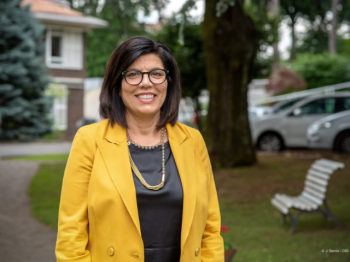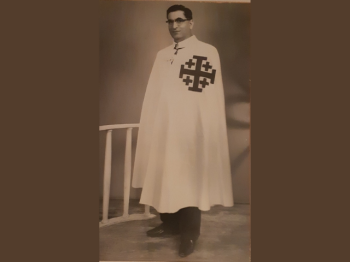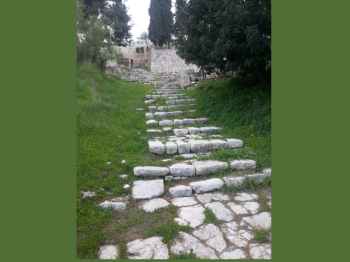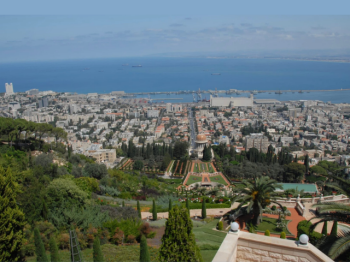“Every Christian is a citizen of the Holy Land”

Originally from the Holy Land, in 2021 Margaret Karram was elected president of the Focolare Movement, founded in 1943 by Chiara Lubich and which today has over two million members. Her father, Boulos Asaad Karram, was a member of the Order of the Holy Sepulchre. “Following in the footsteps of my father, Knight of the Holy Sepulchre, I try to be a servant of the light of love that illuminates the night of humanity,” she says in this interview.
Margaret Karram, what is your Palestinian family history in a nutshell?
I was born in Haifa, Galilee, on 3rd March 1962. My parents, Palestinians and Catholics, named me Marguerite-Marie in honour of the visionary of Parayle-Monial, who helped make the Heart of Jesus known and loved. My father was from Nazareth and my mother from Haifa. They married in the 1950s. I have three siblings: Marie-Thérèse, Anna-Maria, Antoine-Joseph. We received Israeli citizenship at birth. Members of my paternal family who had fled to Lebanon in 1948, when the Jewish state was created, could not return. So we did not get to see our relatives much, but we enjoyed listening to our grandparents and parents telling us our family history and leafing through photo albums. This reality of separated families in the Holy Land is very hard, it is a painful experience, and there is a strong sense of injustice, but our education in the faith gave us a horizon of fraternity to build bridges of peace.
In my childhood we lived in Haifa in a neighborhood where several Jewish families lived, on the slopes of Mount Carmel, not far from the famous monastery-sanctuary of Our Lady of Mount Carmel, and attending the school of the Carmelite nuns we learnt, together with the Arab Muslim children, how to forgive and how to move forward in interreligious relations. I remember that the Jewish children in the neighborhood would sometimes insult us, telling us to leave, that this country was not ours.... Our mother, seeing me cry because of this, decided to invite these children home to offer them warm bread. I was about 5 years old, it was an unimaginable effort for me, but I will never forget the smile of those Jewish children who came out of our house with a piece of delicious Arabic bread each. Later, their parents came to thank my mother and from there a new relationship was born between all of us. I learnt how a small gesture of love can build a friendship and help us overcome our fears.
Ever since I was a child, I have had a strong desire for justice in my heart and over the years I have wanted to dedicate my life to bringing peace to my country. There is still much to be done for Palestinian rights, even though Haifa is considered a multicultural and multi-religious city.




 Margaret Karram's father was a Knight of the Order of the Holy Sepulcher. His example of generosity and service still guides the president of the Focolare Movement today.
Margaret Karram's father was a Knight of the Order of the Holy Sepulcher. His example of generosity and service still guides the president of the Focolare Movement today.
 An international center for unity and peace will rise in Jerusalem near the staircase Jesus used when he left the Upper Room and prayed to his Father "that they may all be one" (John 17:21).
An international center for unity and peace will rise in Jerusalem near the staircase Jesus used when he left the Upper Room and prayed to his Father "that they may all be one" (John 17:21).
 Margaret Karram grew up near the shrine of Our Lady of Mount Carmel in Haifa, Israel.
Margaret Karram grew up near the shrine of Our Lady of Mount Carmel in Haifa, Israel.